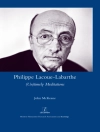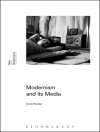The Mexican Transpacific considers the influence of a Japanese ethnic background or lack thereof in the cultural production of several twentieth- and twenty-first-century Mexican authors, performers, and visual artists. Despite Japanese Mexicans’ unquestionable influence on Mexico’s history and culture and the historical studies recently published on this Nikkei community, the study of its cultural production and therefore its self-definition has been, for the most part, overlooked.
This book, a continuation of author Ignacio López-Calvo’s previous research on cultural production by Latin American authors of Asian ancestry, focuses mostly on literature, theater, and visual arts produced by Japanese immigrants in Mexico and their descendants, rather than on the Japanese community as a mere object of study. With this interdisciplinary project, López-Calvo aims to bring to the fore this silenced community’s voice and agency to historicize its own experience.
Зміст
Foreword by Emma Nakatani
Introduction: Nikkei Cultural Production and Transpacific Studies from a Latin Americanist Perspective
Part I: Immigrant, Literary Negotiations of National Identity
1. Nonaka’s Memoir: From Captain in the Mexican Revolution to Enemy of the State
2. Challenges to Nihonjinron in Nakatani’s Memoirs
3. Strategic Essentialism in Akane’s Performative Tanka
Part II: Japanese Mexican Visual and Performance Arts
4. Resignifying Yamato-damashii and Utopian Socialism in the Manga Los samuráis de México
5. Nishizawa’s Bicultural Dialectics and the Critical Stereotyping of His Art
6. The Transpacific in Akiko’s Theatrical Performance
Conclusion: Another Past Is Possible
Notes
Works Cited
Index
Про автора
Ignacio López-Calvo is a professor of literature, director of the Center for the Humanities, and Presidential Chair in the Humanities at UC Merced.












